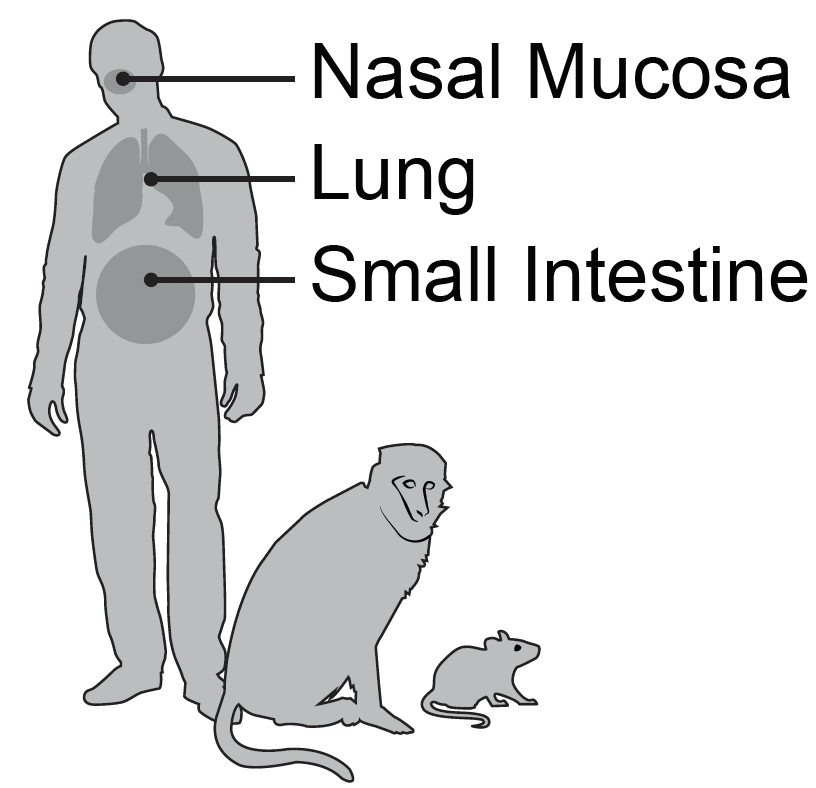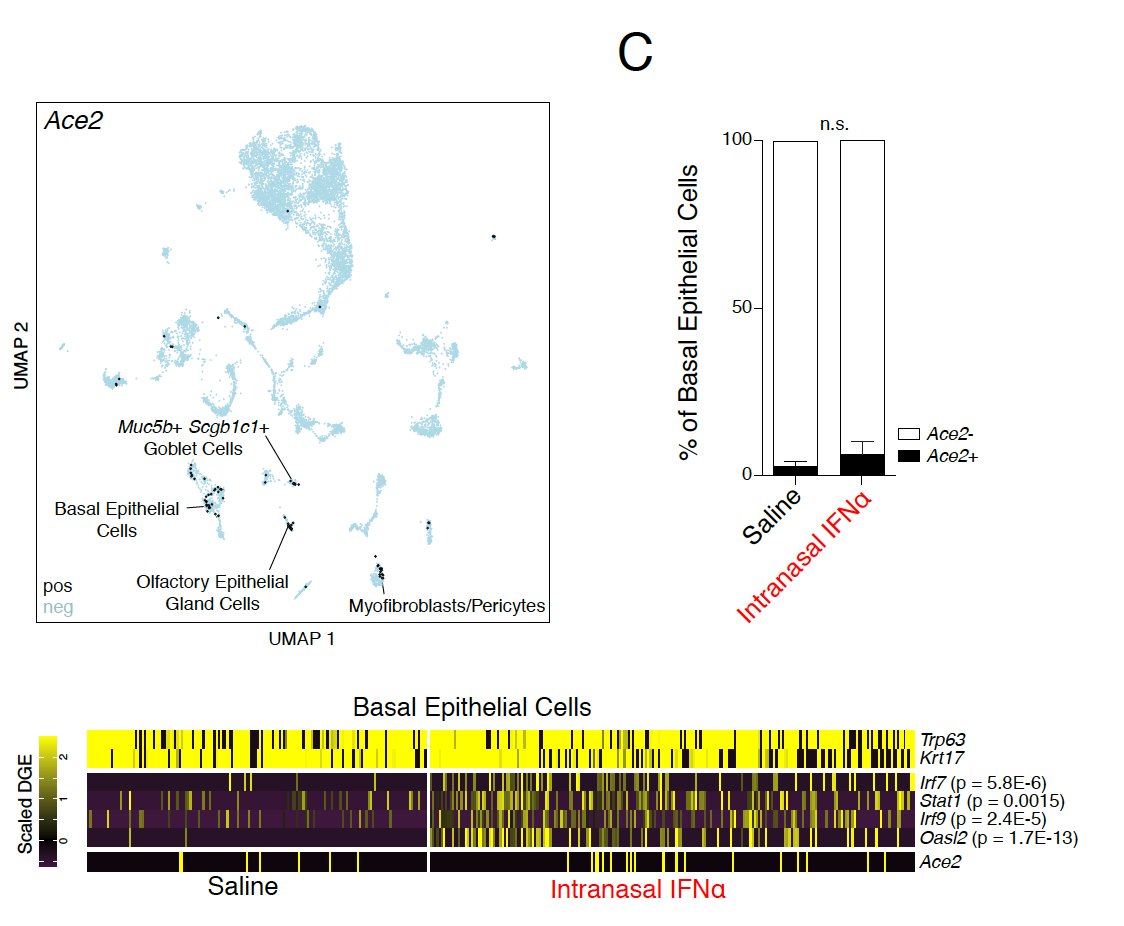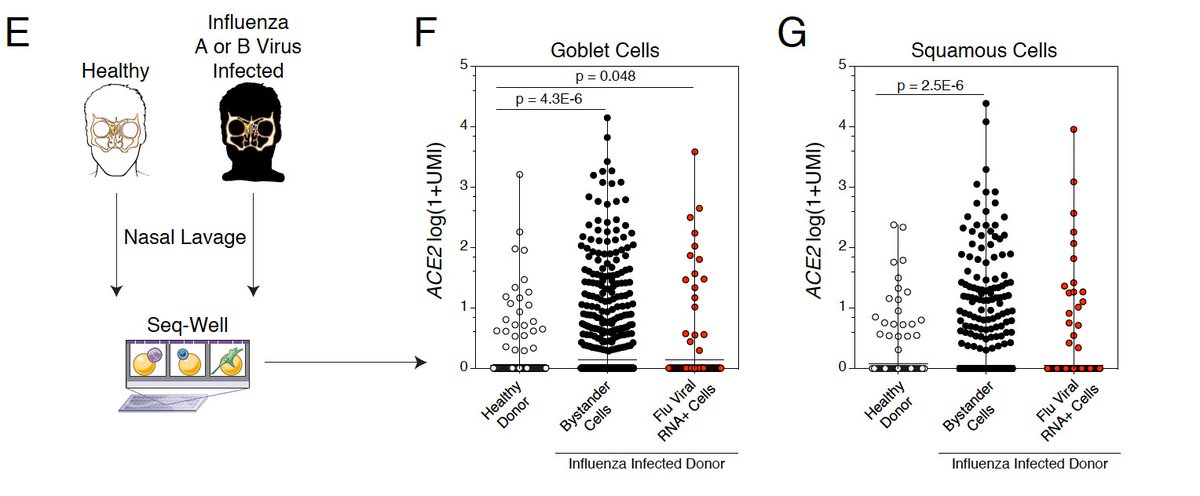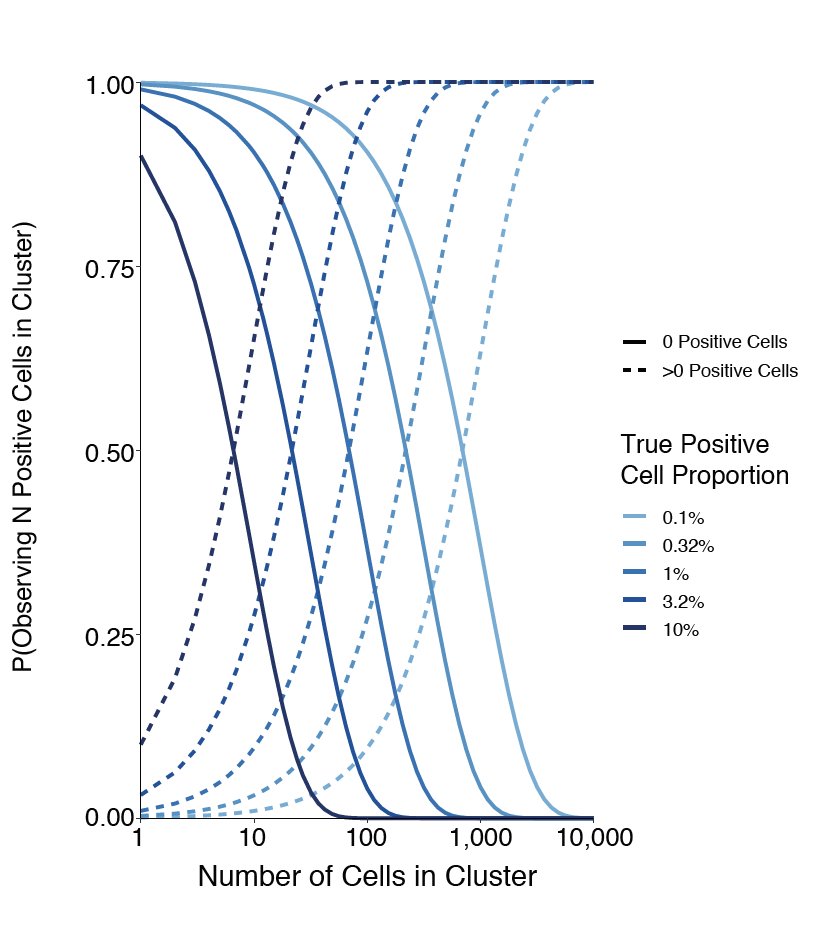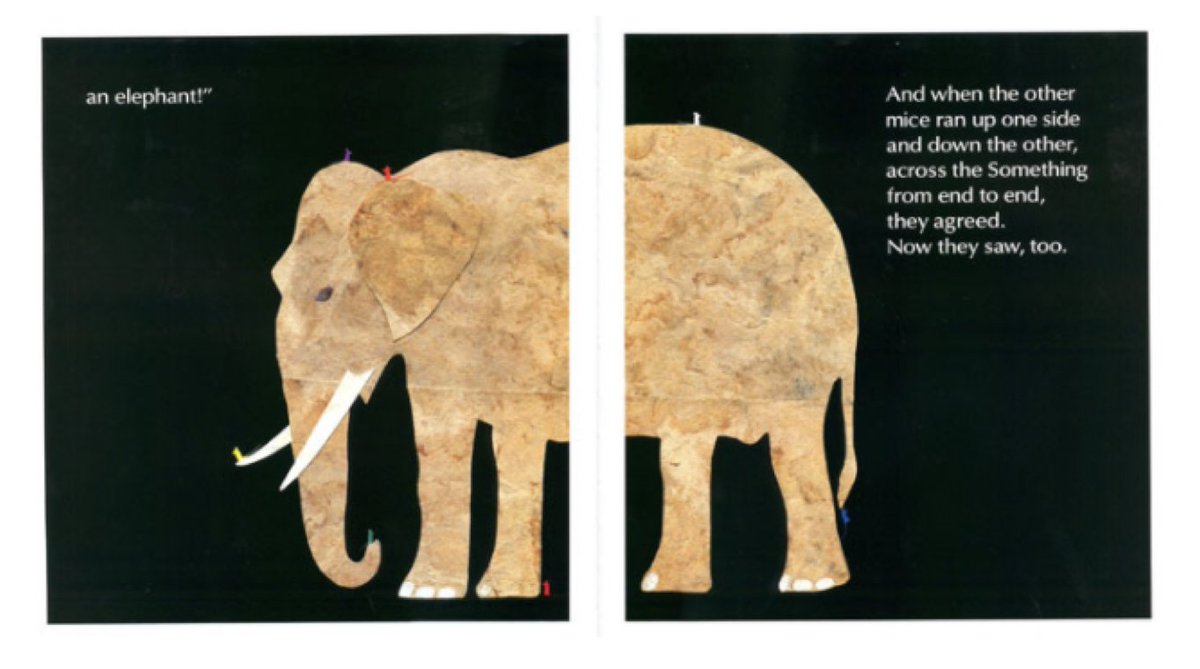1) We are providing an update to our original work identifying that the SARS-CoV-2 receptor ACE2 is an interferon-stimulated gene in human epithelial cells https://twitter.com/ordovas_phd/status/1240043368039829511">https://twitter.com/ordovas_p... (n/17)
2) Our study is now available on the Coronavirus Resource Hub @CellCellPress https://www.cell.com/2019-nCOV .">https://www.cell.com/2019-nCOV... Direct link to the freely-available paper: https://www.cell.com/pb-assets/products/coronavirus/CELL_CELL-D-20-00767.pdf">https://www.cell.com/pb-assets...
3) The study is now peer-reviewed, and includes 39 new figure panels, 15,000 new single cells and 289 new bulk RNA-seq samples. Despite this, it still has many limitations that we hope the community can help us to address.
4) What we can say with confidence is that proper care and consideration must be taken when choosing a model for Covid-19. Species, cell type, and tissue-of-origin all matter for ACE2!
5) Our new findings include that interferon induction of epithelial ACE2 appears to be present in human, but not mouse cells.
6) But not just any human cells! Data from others and our own highlight many commonly used human epithelial cell lines (mimics of the cells SARS-CoV-2 may infect that we can grow easily in the lab) do not induce ACE2 in response to interferon, or lack expression completely.
7) And no matter how hard we tried, dosing mouse primary airway cells with interferons, instilling in vivo, or with a live viral (non-SARS) infection, we could not find evidence for interferon-induced Ace2 in mouse airways.
8) In primary human cells, we continued to find consistent evidence for interferon-induced ACE2 in primary epithelial cells, and during human influenza infection. To learn more about the flu study from @GarberLab and @UMassMedical: https://www.biorxiv.org/content/10.1101/2020.04.15.042978v1">https://www.biorxiv.org/content/1...
9) Together, our work points to the importance of studying primary human cells wherever possible. It raises caveats for the choice Covid-19 pre-clinical mouse models, and established human cell lines used in drug screens.
10) Throughout all of our studies, ACE2 was recurrently expressed at low levels, so @constantine_sci took it upon himself to give us confidence in whether we could say a cell type is ACE2-positive or ACE2-negative (applicable also to genes with similar behavior).
11) So what can we say about interferon in Covid-19: beneficial or harmful? We still don& #39;t know. Based on the duality of ACE2, a balanced and well-timed response is likely essential. ACE2 is not just the entryway for SARS-CoV-2, it is a host factor that protects our tissues.
12) Perhaps most important, this paper represents much more than scientific findings: it is a new way of doing science that we hope can persist. Scientists, institutions, publishers, and funders truly coming together. @ragoninstitute @broadinstitute @cziscience @gatesfoundation
13) People who we haven& #39;t yet had the opportunity to meet contributed unpublished datasets from laborious experiments, thought creatively together with us, and shared their intuition and knowledge in this work. Including @JKropski @SchillerLab @pbarbry and many others!
14) This style of science was only made possible through the support of @discovAIR_HCA and the broader @humancellatlas community. Here are two studies representing further work from the groups: https://www.biorxiv.org/content/10.1101/2020.04.19.049254v1">https://www.biorxiv.org/content/1... and https://arxiv.org/abs/2003.06122 ">https://arxiv.org/abs/2003....
15) We also realized together that the community needs better tools to be able to study how ACE2 as an interferon-stimulated gene translates to ACE2 as a protein, so we caution that our results are primarily in “RNA-space”, and await extension to protein. @CellSignal @BioLegend
16) We hope that this contributes another vantage point to describing the Covid-19 elephant. Only by looking from all angles will we better understand what we are up against. We need scientists, and people, from diverse backgrounds.
17) This study represents the first first-author paper for some stellar PhD students in the @shaleklab, including @carlygailz, Sam Allon, and @snyquist2. And from @AHRI_News, Ian Mbano. We look forward to learning more from them soon about their original PhD work!
We look forward to the insights you& #39;ll find by expanding on the datasets, described and shared in these landing pages: http://shaleklab.com/resource/covid-19-resources/">https://shaleklab.com/resource/... and https://www.ordovas-montanes-lab.com/resources ">https://www.ordovas-montanes-lab.com/resources...

 Read on Twitter
Read on Twitter